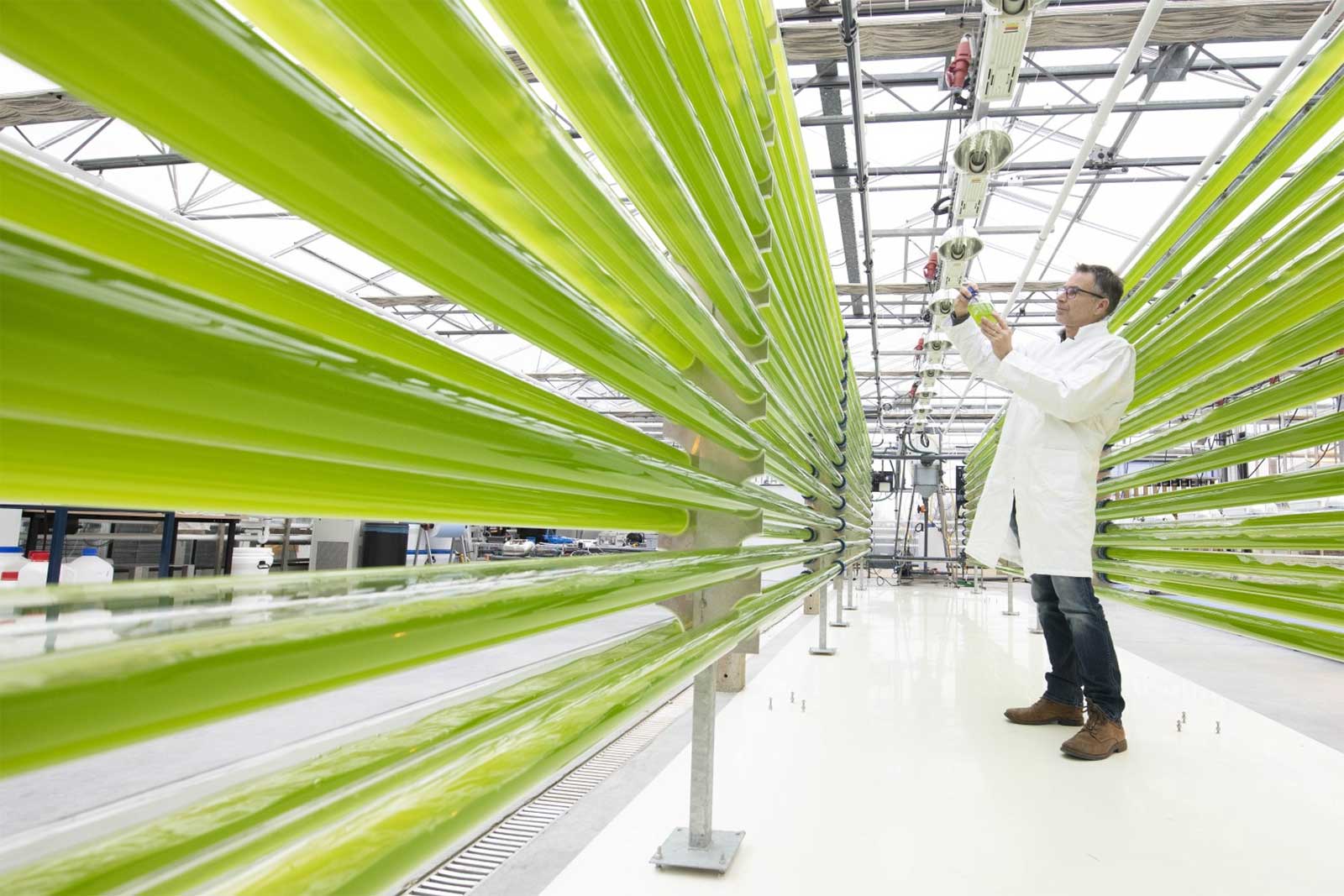AlgaePARC has been developing technology in the field of microalgae production and biorefinery for 10 years. Since 2016, the pilot plant also offers support to SMEs and start-ups. They can make use of the facilities and expertise within Wageningen University & Research (WUR) to further develop their innovative technologies. “High investments in this phase involve high risks. They are difficult for an individual SME to finance,” says Petra Roubos, Manager of Shared Research Facilities at WUR. “We can offer support in this matter.”
“The facilities that will be available in ‘AlgaePARC 2.0’ are new screening systems with accelerated selection of algae strains and a biorefinery unit that can be used to isolate functional ingredients in addition to biomass,” explains Maria Barbosa, professor of bioprocess engineering at WUR. “Also, the production and testing capacity at laboratory, pilot and demonstration scale will be expanded and innovative sensors can be used to achieve better product quality.”
Thanks to the REACT-EU grant, AlgaePARC can develop business cases for new technologies and products together with SMEs and start-ups to attract investors and help actually realise market solutions. Currently, three SMEs are making use of AlgaePARC’s facilities. Two companies have also been founded on the basis of research done at AlgaePARC (FUMI, Algreen).
Wageningen University & Research is world leader in the field of microalgae production and biorefinery. The development of commercial and sustainable production chains for food, feed, chemicals, materials and fuels from microalgae is central to this.
Image: WUR



